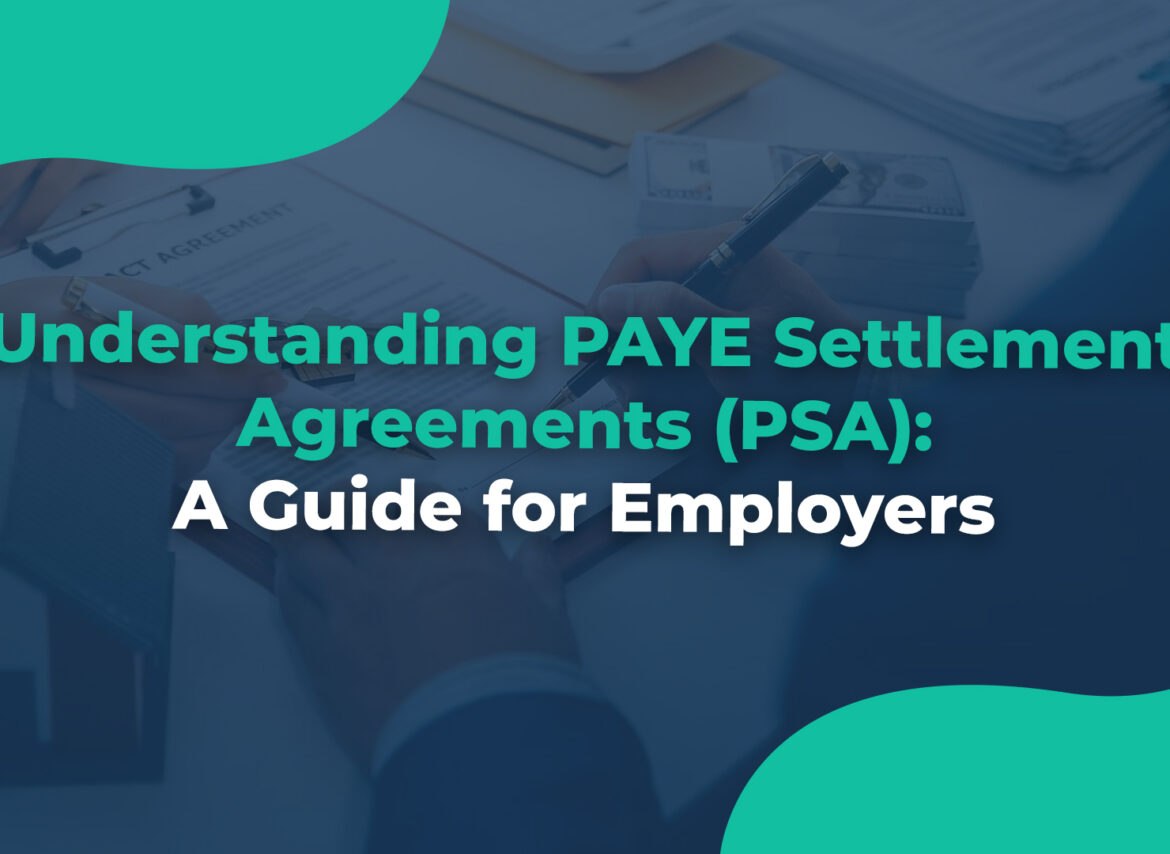As an employer, managing employee benefits and expenses can sometimes be complicated, especially when it comes to ensuring compliance with tax laws. One useful tool to simplify this process is a PAYE Settlement Agreement (PSA).
A PSA allows employers to settle the tax and National Insurance contributions for certain expenses and benefits, saving time and reducing administrative burden. If you’re looking for a better way to handle minor or irregular employee benefits. This flexible scheme may be the solution you need.
Understanding PAYE Settlement Agreements (PSA): A Guide for Employers
What is a PAYE Settlement Agreement (PSA)?
A PAYE Settlement Agreement is a scheme that enables employers to settle the PAYE tax and National Insurance contributions (NICs) due to specific types of employee expenses and benefits. These could include minor or irregular items that are difficult to manage or value for tax purposes.
Essentially, the employer agrees to pay the taxes on behalf of the employee. This streamlines the tax process and ensures full compliance with HMRC rules.
Types of Expenses and Benefits Covered by a PSA
The PSA applies to three main types of expenses and benefits:
- Minor Items – These are small-value benefits or expenses, such as gifts, meals, or items. That are infrequently provided and don’t exceed a certain threshold.
- Irregular Items – This category includes occasional benefits, such as one-off gifts or payments. That don’t form part of the regular employee compensation package.
- Impractical to Value Items – Some benefits are difficult or impractical to value for P11D purposes (the document employers must file detailing the benefits employees receive). These can include non-cash benefits that don’t have an easily definable value or benefits where it’s unreasonable to calculate PAYE on an individual basis.
How Does a PSA Work?
Under a PSA, the employer makes a single payment to HMRC to cover:
- Tax Due on Benefits – The tax owed on the items covered by the PSA, which is normally the responsibility of the employee, is instead paid by the employer. This is typically tax that would otherwise be deducted from the employee’s pay through their tax code. The employer must “gross up” the payment, accounting for the different tax rates applicable to the employees covered by the PSA.
- Class 1B National Insurance Contributions – In addition to the tax payment, the employer is also required to pay Class 1B NICs. This contribution is calculated based on both the value of the benefits provided and the tax paid under the PSA. The amount owed is higher than the usual Class 1 NICs due on wages. As it includes the total tax and NICs associated with the benefits.
Key Benefits of Using a PSA
- Simplified Tax Management: A PSA reduces the administrative burden of managing the taxation of employee benefits. By paying the tax and National Insurance contributions directly to HMRC, employers can ensure that they remain compliant without requiring detailed individual calculations for each employee.
- Minimising Errors: Tax codes, P11Ds, and other employee tax matters can be complicated. Leading to potential errors in reporting or deductions. The PSA helps mitigate this by consolidating tax payments into one agreement, reducing mistakes and discrepancies.
- Flexibility for Irregular or Minor Benefits: A PSA is especially helpful for dealing with benefits that are irregular or minor. It can be difficult to track the value of such benefits for individual employees, so having a simplified payment structure for these expenses ensures smooth administration.
- Coverage for Overseas Employees: A PSA can also apply to employees who are based overseas or those not domiciled in the UK, as long as the benefits or expenses are taxable in the UK. This makes the scheme beneficial for international employers or those with a diverse workforce.
When to Consider Using a PSA
A PSA can be a helpful solution for many businesses, particularly those that provide a variety of irregular or minor benefits. If your company offers occasional gifts, one-off payments, or other non-cash benefits. The PSA could save you time, reduce paperwork, and ensure compliance with tax rules.
However, the scheme does not apply to all types of employee expenses. Benefits such as salaries, bonuses, pensions, or ordinary, ongoing company perks are not covered by the PSA. As they need to be reported through regular payroll processes.
PAYE Settlement Agreements – Conclusion
A PAYE Settlement Agreement can be an incredibly useful tool for employers who want to simplify the administration of employee benefits and expenses. Especially when dealing with irregular, minor, or hard-to-value items. By centralising the payment of taxes and National Insurance contributions. It reduces administrative effort and the risk of errors, helping to ensure compliance with UK tax laws.
Whether you have employees based overseas or you simply offer occasional perk. The PSA can save time and offer peace of mind when it comes to managing employee benefits.
TMG Pitchers have tailored solutions for your PAYE Settlement Agreements. Contact us to streamline your business legally.






